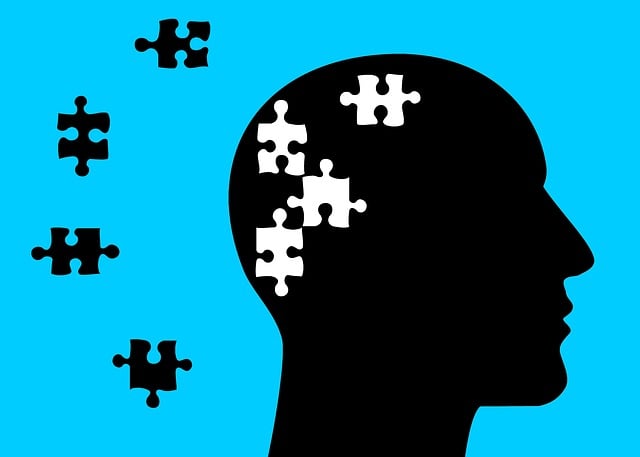Mental health professionals in diverse societies like the UK must prioritize cultural sensitivity, understanding clients' backgrounds to tailor therapy approaches. Techniques such as Westminster Interpersonal Issues Therapy (WIIP) focus on interpersonal dynamics and communication across cultures. By integrating WIIP into training, therapists enhance risk management, build trust, and improve outcomes for individuals from various ethnic, racial, and socio-economic backgrounds. Continuous learning, systemic understanding, and self-care strategies are vital to navigating cultural sensitivity effectively in mental healthcare.
“Cultural sensitivity is a cornerstone in providing effective mental healthcare, ensuring equitable treatment for all. This article explores the intricate relationship between cultural competence and mental wellness, with a specific focus on Westminster Interpersonal Issues Therapy (WIIT) as a framework. We delve into the challenges faced by practitioners when navigating diverse cultural backgrounds, offering strategies to enhance patient outcomes. By understanding cultural sensitivity, healthcare professionals can employ WIIT techniques to create inclusive environments, foster trust, and deliver personalized care.”
- Understanding Cultural Sensitivity in Mental Healthcare
- The Role of Westminster Interpersonal Issues Therapy
- Challenges and Strategies for Culturally Competent Practice
- Enhancing Patient Outcomes through Cultural Sensitivity
Understanding Cultural Sensitivity in Mental Healthcare

Cultural sensitivity is a cornerstone in mental healthcare practice, ensuring that therapeutic services are accessible and effective across diverse populations. It involves recognizing and respecting the unique cultural backgrounds, beliefs, values, and traditions of clients, and adapting practices accordingly. This approach is especially relevant in a multicultural society like the UK, where issues such as immigration, ethnic diversity, and social inequality can significantly impact mental health and wellness. For instance, an individual’s experience with interpersonal issues might be shaped by their cultural norms and expectations, requiring therapists to employ tailored strategies when delivering Westminster Interpersonal Issues Therapy.
Mental healthcare professionals play a vital role in fostering cultural sensitivity through continuous learning and self-reflection. This includes gaining knowledge about different cultures, understanding the impact of systemic barriers on mental wellness, and developing skills to conduct comprehensive risk assessments (a crucial aspect for mental health professionals). Moreover, integrating Mental Wellness Coaching Programs and implementing burnout prevention strategies can enhance cultural sensitivity by promoting self-care, reflection, and a deeper understanding of clients’ lived experiences.
The Role of Westminster Interpersonal Issues Therapy

Westminster Interpersonal Issues Therapy (WIIP) plays a pivotal role in enhancing cultural sensitivity within mental healthcare practices. By focusing on interpersonal relationships and communication, WIIP equips therapists with tools to navigate diverse cultural contexts effectively. This approach is particularly relevant in today’s globalized world where mental health professionals often encounter clients from various ethnic, racial, and socio-economic backgrounds.
Integrating WIIP into training programs for mental health professionals can significantly contribute to risk management planning. By fostering self-esteem improvement and encouraging positive thinking, therapists become more adept at creating safe, inclusive spaces for all individuals. This cultural sensitivity is essential for building trust, ensuring effective therapy outcomes, and promoting equitable access to mental healthcare services.
Challenges and Strategies for Culturally Competent Practice

Navigating cultural sensitivity in mental healthcare is a complex task, particularly when addressing interpersonal issues. The diverse nature of communities presents unique challenges for therapists, demanding they adapt their practices to create safe and inclusive spaces for clients from various backgrounds. One of the primary hurdles is understanding the intricate interplay of culture and psychology. Different cultural groups have distinct beliefs, values, and expressions of emotion, which can significantly impact how individuals perceive and seek help for mental health issues. For instance, some cultures may emphasize collective suffering over individual experiences, affecting the way therapy is conceptualized and delivered.
At Westminster Interpersonal Issues Therapy, we recognize that culturally competent practice involves a continuous learning process. Therapists must be adept at incorporating cultural awareness into their sessions using techniques like active listening, open-mindedness, and cultural inquiry. Promoting emotional well-being requires an understanding of the client’s framework for emotions and mental distress. This may involve educating both therapist and client about cultural nuances related to emotional healing processes and regulation. By doing so, we foster a collaborative environment where therapeutic goals are achieved while respecting and honoring diverse cultural perspectives.
Enhancing Patient Outcomes through Cultural Sensitivity

Cultural sensitivity is a cornerstone in enhancing patient outcomes within mental healthcare practices. By incorporating insights into patients’ cultural backgrounds and values, therapists can create safer, more inclusive environments that foster trust and engagement. This understanding allows for tailored interventions, ensuring that treatment aligns with the individual’s beliefs and experiences. For instance, Westminster Interpersonal Issues Therapy recognizes the impact of cultural context on interpersonal relationships and mental well-being, offering strategies to address challenges unique to diverse populations.
This approach extends beyond treating symptoms; it aims to prevent burnout among therapists by fostering empathetic connections. By integrating cultural sensitivity into therapy sessions, professionals can better navigate complex interpersonal issues, reducing the risk of exhaustion. Additionally, promoting cultural awareness facilitates social skills training, which is instrumental in breaking down barriers and reducing the stigma surrounding mental illness. Such initiatives contribute to a more inclusive healthcare system that respects diversity and promotes positive outcomes for all.
Cultural sensitivity is an indispensable aspect of mental healthcare, and the Westminster Interpersonal Issues Therapy (WIIT) approach offers a comprehensive framework for addressing diverse interpersonal challenges. By recognizing and respecting cultural differences, mental health professionals can significantly enhance patient outcomes. The strategies outlined in this article, including culturally competent practice techniques, empower providers to navigate complex interpersonal dynamics effectively. Embracing cultural sensitivity not only improves individual patient care but also fosters a more inclusive and accessible healthcare system.














